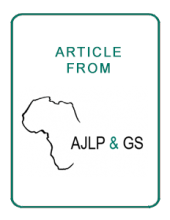Land Library
Welcome to the Land Portal Library. Explore our vast collection of open-access resources (over 74,000) including reports, journal articles, research papers, peer-reviewed publications, legal documents, videos and much more.
/ library resources
Showing items 1 through 9 of 15.The Eastern Africa Land Administration Network has since 2006 been collaborating in the development of education, short courses for land professionals and research in the eastern Africa region.
Land administration as one of the mechanisms of availing property rights to owners cannot be achieved unless there are well-functioning and coordinated institutional frameworks.
The adoption of modern Land Administration Systems (LAS) in Sub Saharan Africa is done with the expectation that principles of equity, non-discrimination, efficiency, transparency, productivity and sustainability among others may be achieved to meet societal needs in those countries.
Innovative technologies for land governance can promote clear land tenure and effective land administration, reduce corruption, and support economic growth. Mobile technologies offer real-time access to information and open communication between people and government services.
There is increasing awareness that innovations foster inclusive land administration and ease of access to land among citizens but studies exploring innovations in government within the context of developing countries are scanty.
The concept of Private-Public Partnership was used to provide infrastructure in developed countries for long time and the arrangement was applied by other countries due to its effectiveness and efficiency.
ABSTRACTRapid urbanization has continued to occur in many post independent capital cities in Africa with serious competition for land and housing among urban dwellers thereby posing challenges to governments.
In this paper, we present and discuss the principles, approach and provisions for a country implementation strategy for Fit for Purpose Land Administration in Uganda.
The Land Use Act of Nigeria, first enacted in 1978 was intended to simplify and standardise land administration systems across the country.

